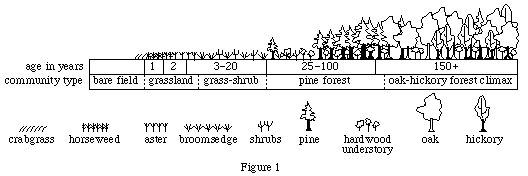4. PROSE FICTION: This passage is adapted from Elizabeth
Bishop’s short story "The Housekeeper" (1984 by Alice Methfessel).
Outside, the rain continued to run down the
screened windows of Mrs. Sennett's little Cape Cod
cottage. The long weeds and grass that composed the
front yard dripped against the blurred background of
5 the bay, where the water was almost the
color of the
grass. Mrs. Sennett's five charges were vigorously
playing house in the dining room. (In the wintertime,
Mrs. Sennett was housekeeper for a Mr. Curley, in
Boston, and during the summers the Curley children
10 boarded with her on the Cape.)
My expression must have changed. "Are those
children making too much noise?" Mrs. Sennett
demanded, a sort of wave going over her that might
mark the beginning of her getting up out of her chair. I
15 shook my head no, and gave her a little
push on the
shoulder to keep her seated. Mrs. Sennett was almost
stone-deaf and had been for a long time, but she could
read lips. You could talk to her without making any
sound yourself, if you wanted to, and she more than
20 kept up her side of the conversation in
a loud, rusty
voice that dropped weirdly every now and then into a
whisper. She adored talking.
To look at Mrs. Sennett made me think of eigh-
teenth-century England and its literary figures. Her hair
25 must have been sadly thin, because she always
wore,
indoors and out, either a hat or a sort of turban, and
sometimes she wore both. The rims of her eyes were
dark; she looked very ill.
Mrs. Sennett and I continued talking. She said she
30 really didn't think she'd stay with the
children another
winter. Their father wanted her to, but it was too much
for her. She wanted to stay right here in the cottage.
The afternoon was getting along, and I finally left
because I knew that at four o'clock Mrs. Sennett's "sit
35 down" was over and she started to
get supper. At six
o'clock, from my nearby cottage, I saw Theresa coming
through the rain with a shawl over her head. She was
bringing me a six-inch-square piece of spicecake, still
hot from the oven and kept warm between two soup
40 plates.
A few days later I learned from the twins, who
brought over gifts of firewood and blackberries, that
their father was coming the next morning, bringing
their aunt and her husband and their cousin. Mrs.
45 Sennett had promised to take them all on
a picnic at the
pond some pleasant day.
On the fourth day of their visit, Xavier arrived
with a note. It was from Mrs. Sennett, written in blue
ink, in a large, serene, ornamented hand, on linen-finish
50 paper:
. . . Tomorrow is the last day Mr. Curley has and
the Children all wanted the Picnic so much. The Men
can walk to the Pond but it is too far for the Children. I
see your Friend has a car and I hate to ask this but
55 could
you possibly drive us to the Pond tomorrow
morning? . . .
Very sincerely yours,
Carmen Sennett
After the picnic, Mrs. Sennett's presents to me
60 were numberless. It was almost time for
the children to
go back to school in South Boston. Mrs. Sennett
insisted that she was not going; their father was coming
down again to get them and she was just going to stay.
He would have to get another housekeeper. She said
65 this over and over to me, loudly, and
her turbans and
kerchiefs grew more and more distrait.
One evening, Mary came to call on me and we sat
on an old table in the back yard to watch the sunset.
"Papa came today," she said, "and we've got
to go
70 back day after tomorrow."
"Is Mrs. Sennett going to stay here?"
"She said at supper she was. She said this time she
really was, because she'd said that last year and came
back, but now she means it."
75 I said, "Oh dear," scarcely
knowing which side I
was on.
"It was awful at supper. I cried and cried."
"Did Theresa cry?"
"Oh, we all cried. Papa cried, too. We always do."
80 "But don't you think Mrs. Sennett
needs a rest?"
"Yes, but I think she'll come, though. Papa told
her he'd cry every single night at supper if she didn't,
and then we all did."
The next day I heard that Mrs. Sennett was going
85 back with them just to "help settle."
She came over the
following morning to say goodbye, supported by all
five children. She was wearing her traveling hat of
black satin and black straw, with sequins. High and
somber, above her ravaged face, it had quite a Spanish-
90 grandee air.
"This isn't really goodbye," she said. "I'll
be back
as soon as I get these bad, noisy children off my
hands."
But the children hung on to her skirt and tugged at
95 her sleeves, shaking their heads
frantically, silently
saying, "No! No! No!" to her with their
puckered-up
mouths.
Which of the following does the passage suggest is the
result of Mrs. Sennett’s loss of hearing?

















